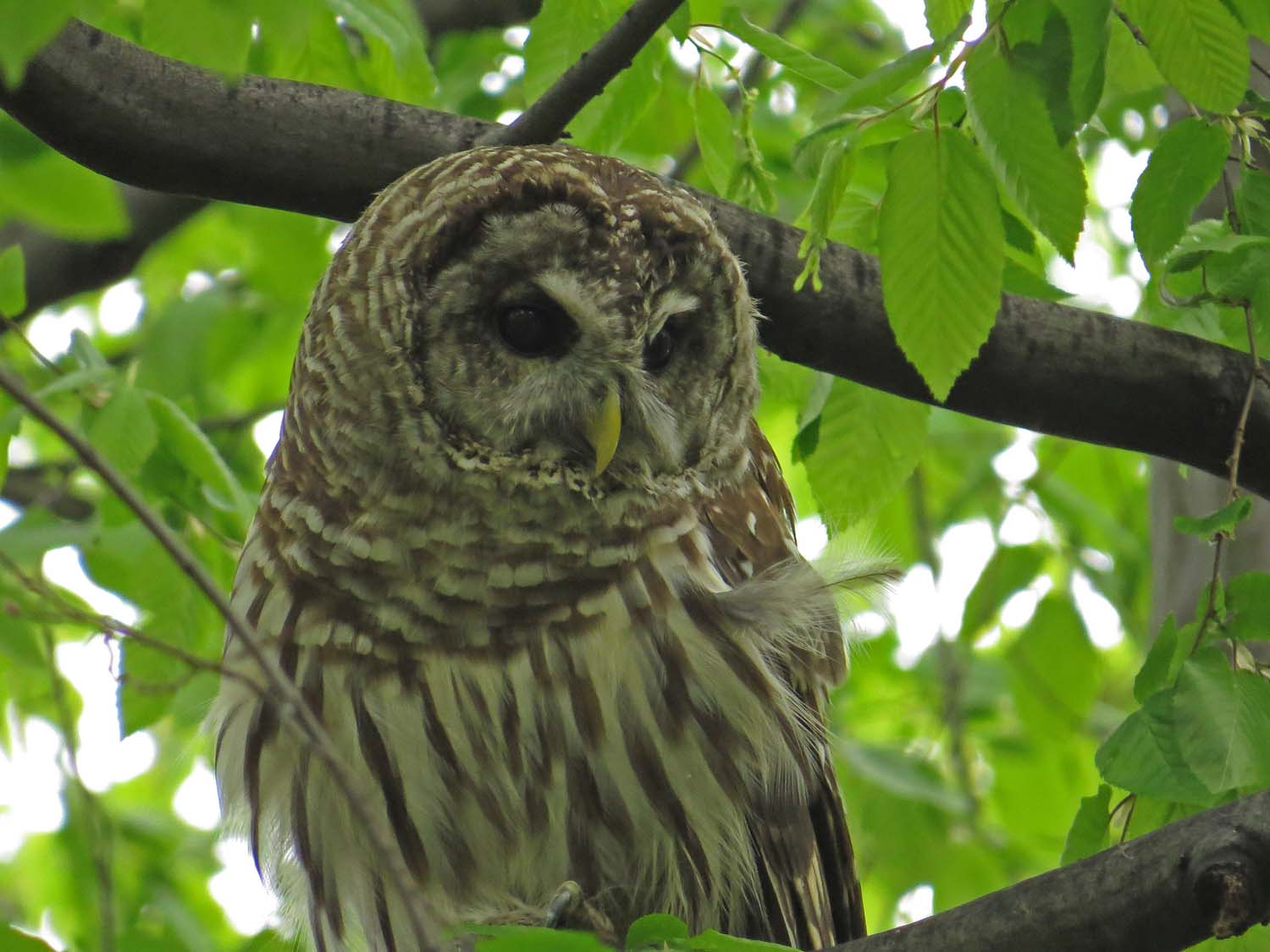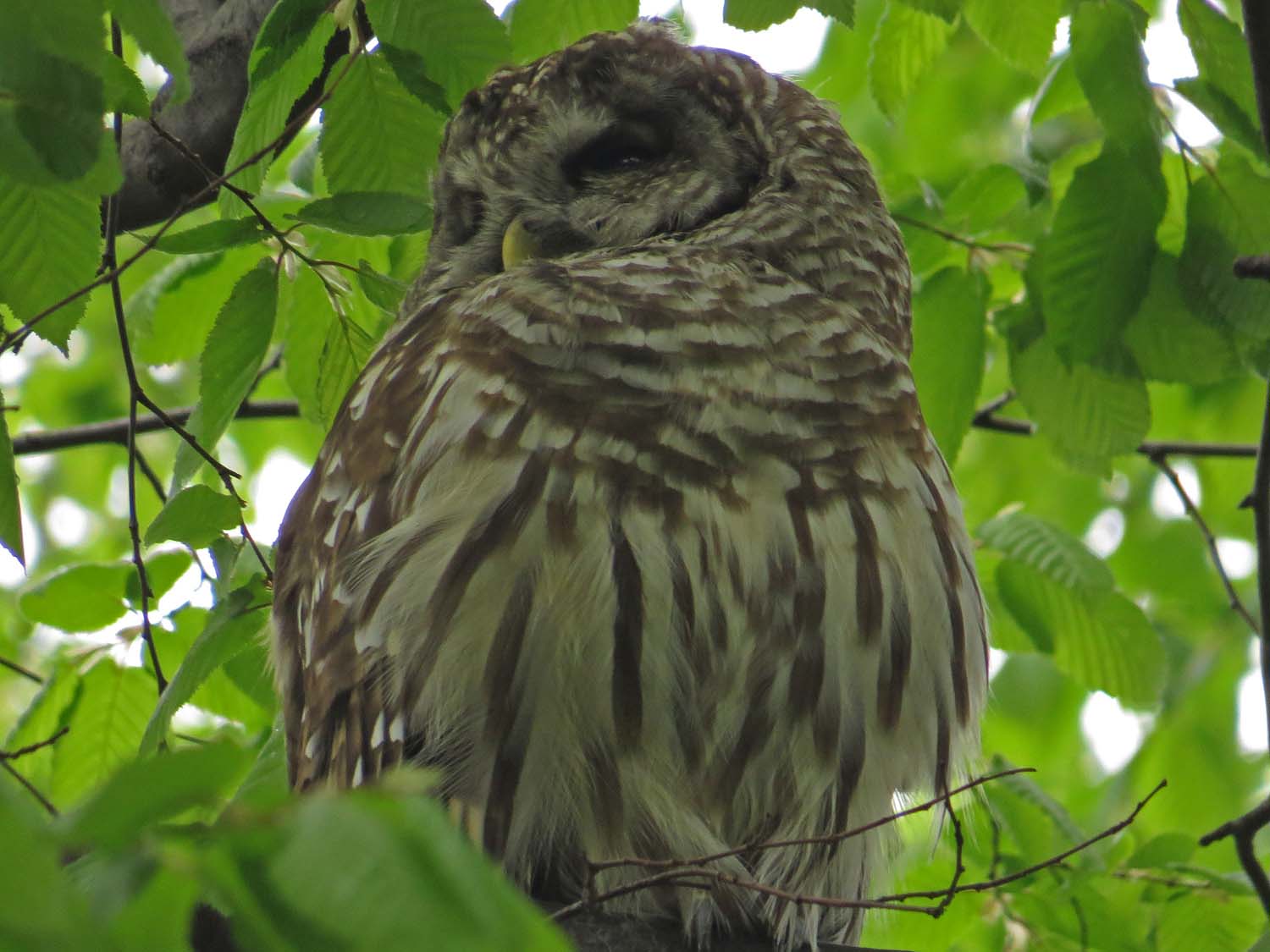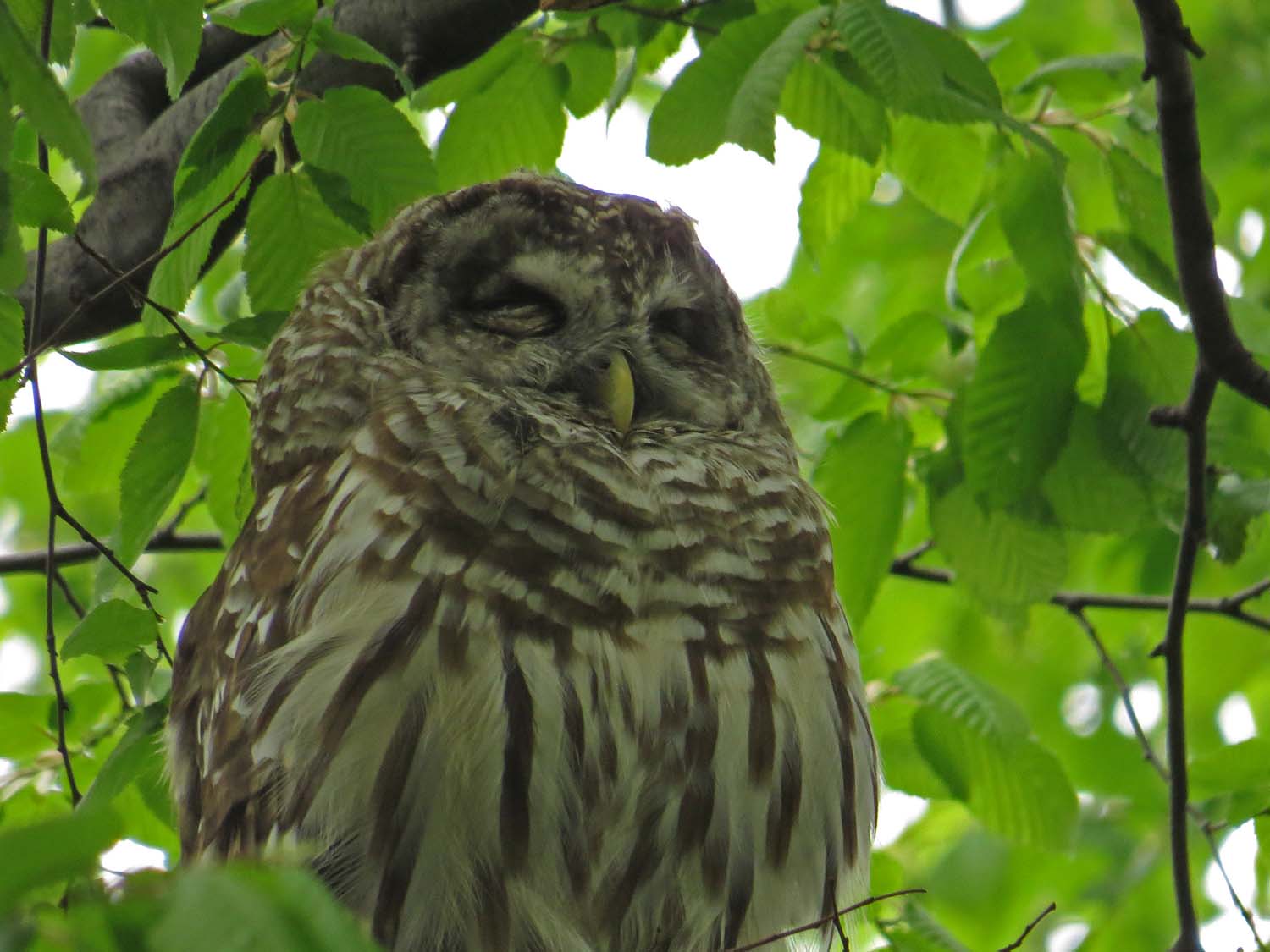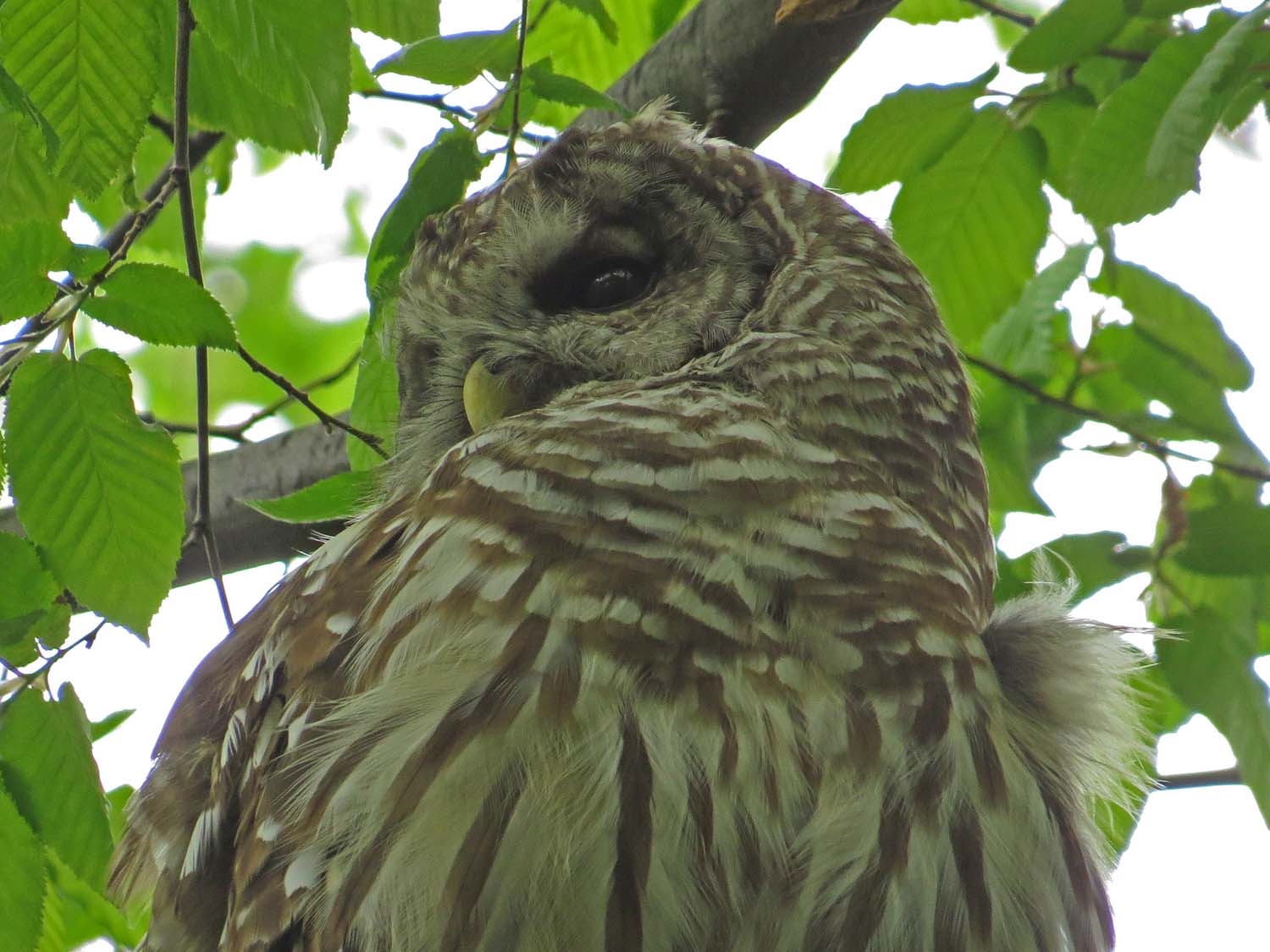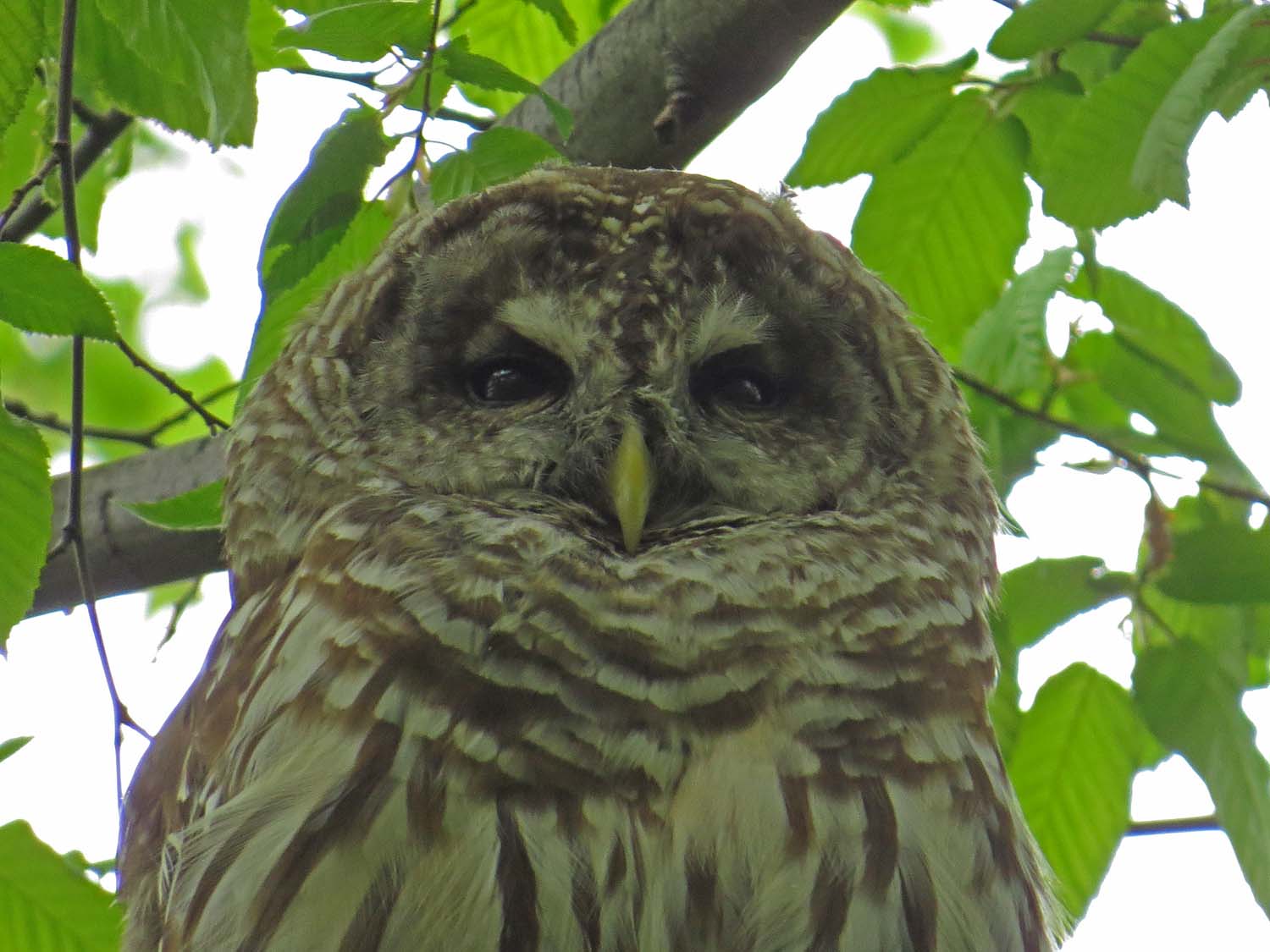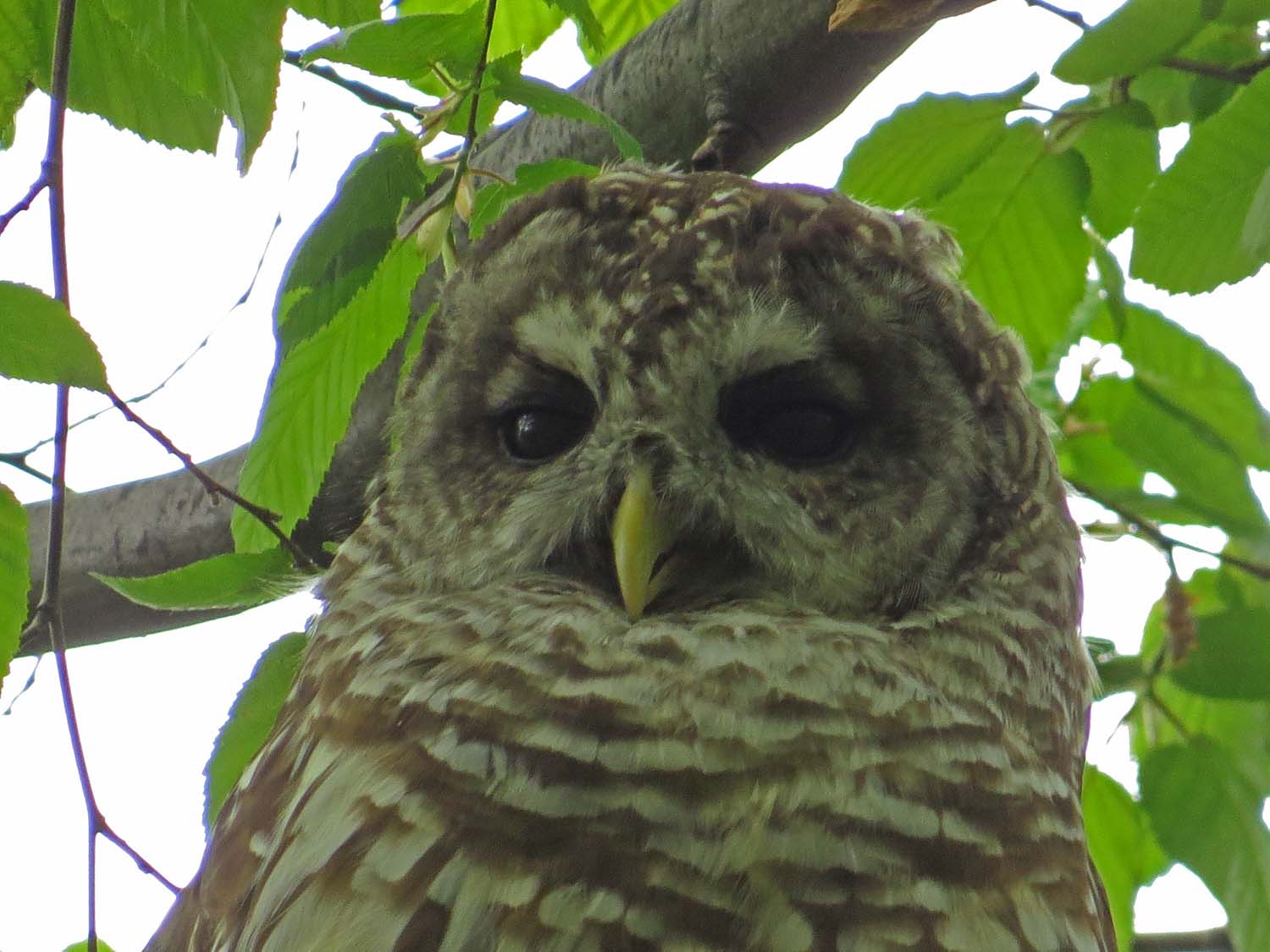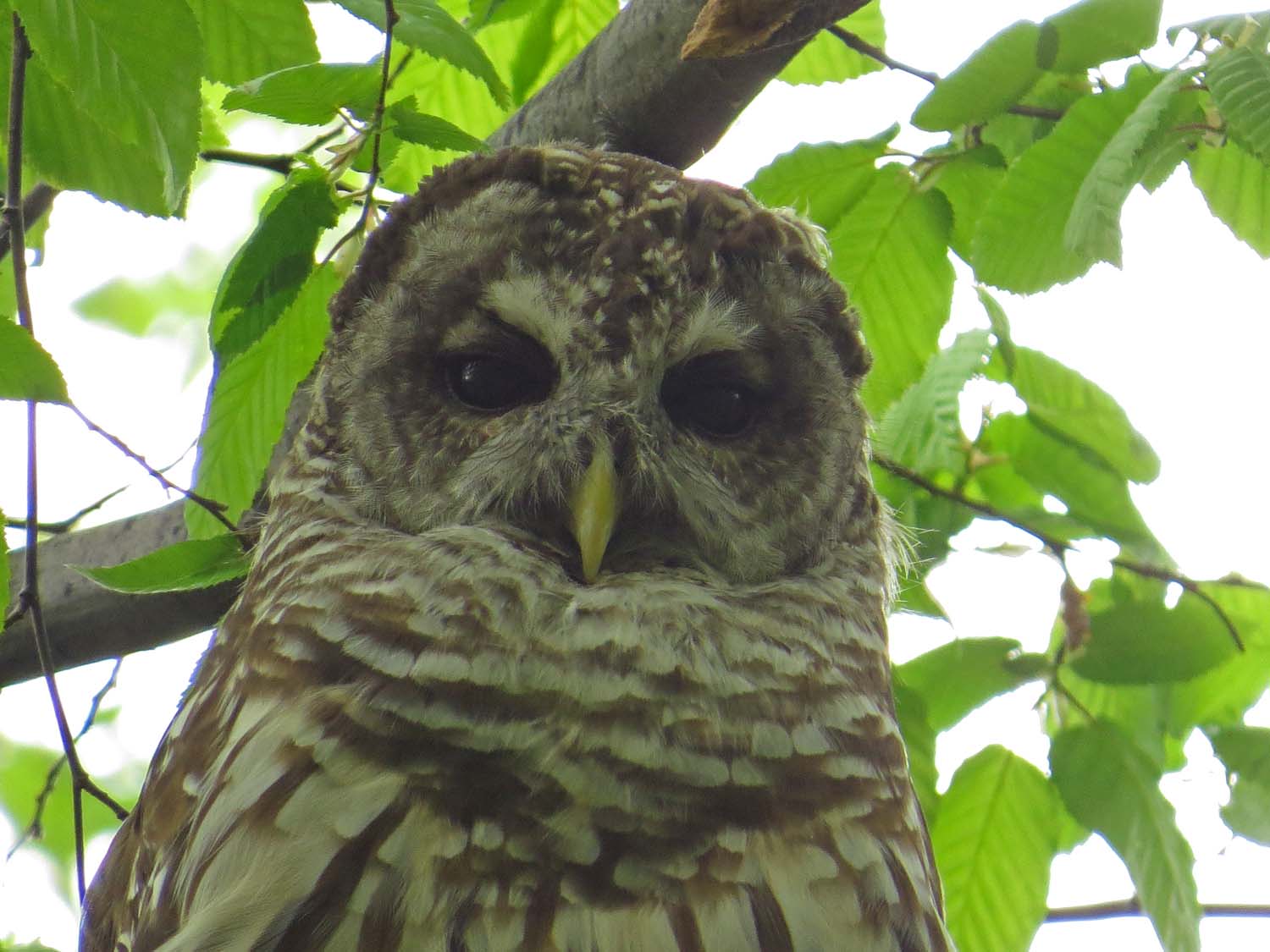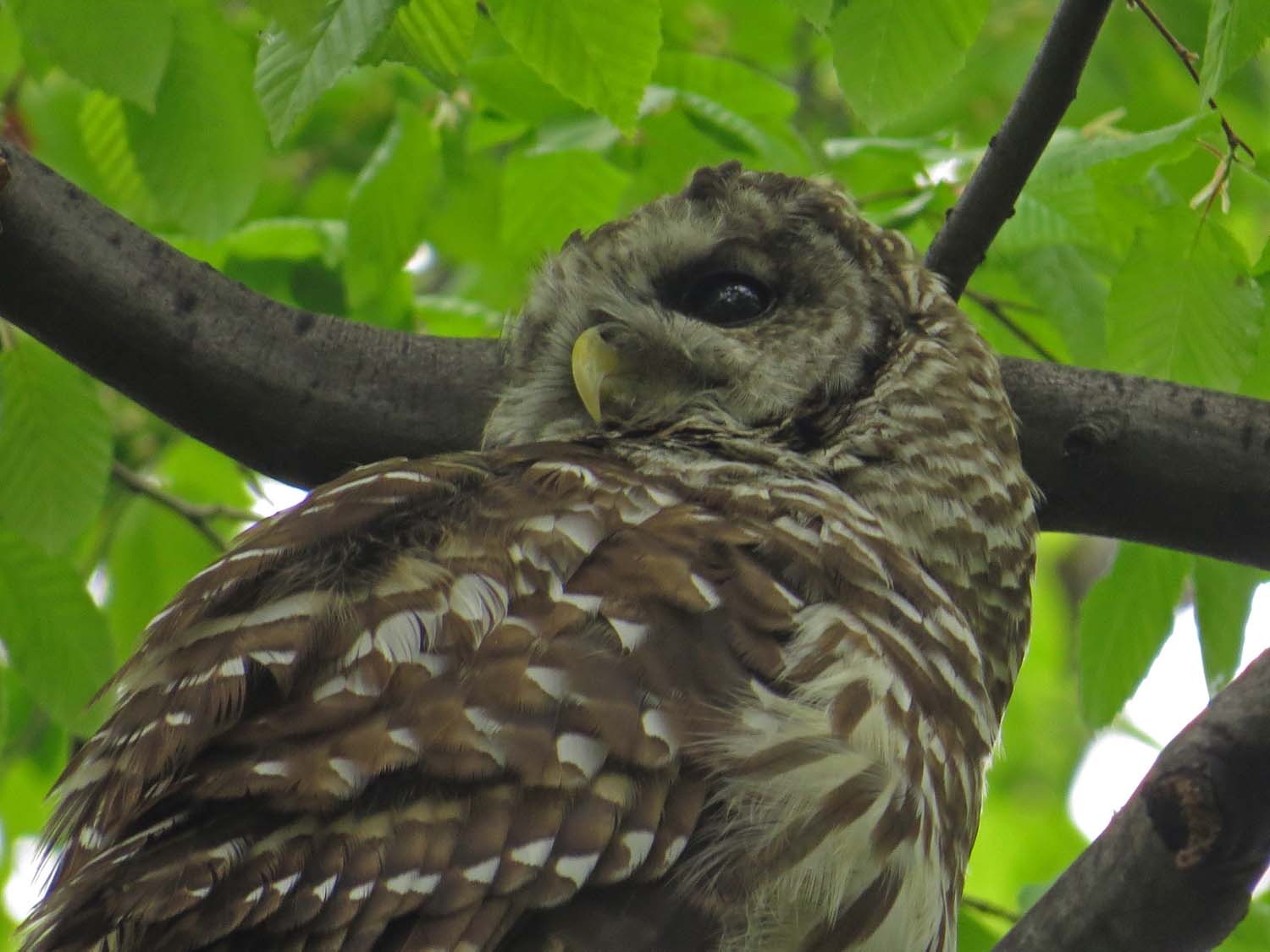The first owl I saw in Central Park was a saw-whet, in April 2013. The next time I heard about an owl in the park was July 2013, when one was spotted high in a pine in the Pinetum. When I was told the owl's name, in my head I spelled it "B-A-R-D," and wondered why I couldn't find a reference to a "bard owl." I finally figured out it was a barred owl, which made more sense. But I still think of this owl as the "poet" of the owls.
Shakespeare, a barred owl in the Ramble, April 26, 2017
On April 26, a barred owl took up temporary residence in the Ramble and provided a joyful day for all who saw him (I'm going with him, even though no one knew for sure whether he was a he or a she). The owl was fairly low, and preened and stretched and kept an eye on all the photographers and binocular-raising birders who came to witness his majesty. I named the owl Shakespeare (I'm pretty sure I'm the only one who called him that, but after all, he was a "bard owl" and the Delacorte Theater wasn't that far away!). And of course, I made a Filming the Feathers video.
So here's to Shakespeare, the Bard of Central Park! And here are photos and some of Shakespeare's poetry.
“The clamorous owl, that nightly hoots and wonders / At out quaint spirits.” — A Midsummer Night's Dream
"The night to th’ owl and morn to th’ lark less welcome." — Cymbeline
"With a good leg and a good foot, uncle, and money enough in his purse, such a man would win any woman in the world, if a' could get her good-will." — Much Ado About Nothing
"They say the owl was a baker’s daughter." — Hamlet






